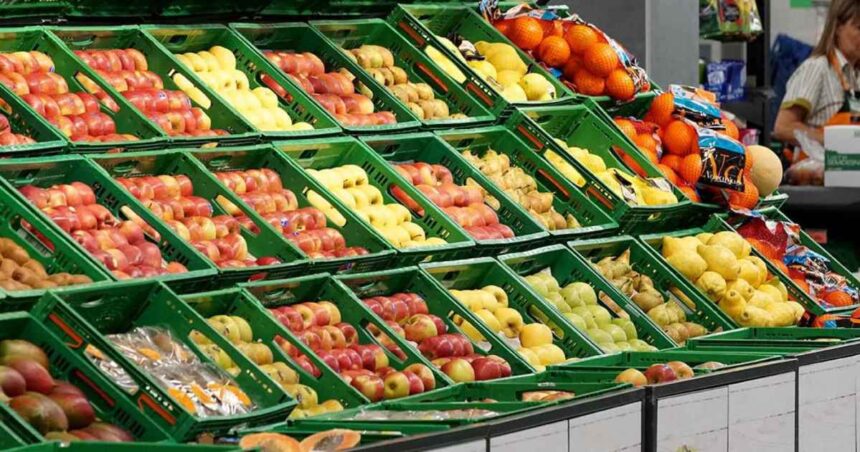Introduction
Amidst the lingering indulgence of the holiday season, it’s crucial to remember that relishing delicious yet healthy foods is entirely possible. Slow-cooked dishes exemplify this, showcasing quality ingredients simmered to perfection—a comforting remedy as many grapple with seasonal viruses. Hence, it’s exciting to shine the spotlight back on a superfood like shallots, a culinary gem that the French swear by. Let’s take a cue from our French counterparts and consider incorporating these into our shopping carts, readily available at Mercadona.
Unveiling the Shallot
Known by various names such as shallot, eschalot, echalote, or carlota, the shallot is a bulb belonging to the Allium family, akin to onions and garlic. Resembling onions but smaller and elongated, they grow in clusters, sporting a thinner skin. Mercadona offers these French-origin shallots packaged by Tara, a company based in Requena, Valencia, at the price of €1.69 for a 250-gram mesh bag.
According to the Spanish Nutrition Foundation (FEN), the nutritional value per 100 grams of shallots includes 72 calories, 2.5 grams of protein, 0.2 grams of fat, 17 grams of carbohydrates, 3 grams of fiber, 1.2 milligrams of iron, and 37 milligrams of calcium. Notably, they also provide significant amounts of magnesium, phosphorus, potassium, zinc, folic acid, vitamins from the B group, vitamin A, and vitamin C. These nutrient percentages contribute to various health benefits, commencing with their antioxidant action, shielding cells from the harm caused by free radicals.
Health Benefits of Shallots
Shallots boast kaempferol, quercetin, and allicin, formed when sliced or crushed—antioxidants renowned for reducing oxidative stress. Scientific studies demonstrate their role in preventing chronic conditions such as cancer, diabetes, and heart diseases. Quercetin, in particular, exhibits properties aiding in the reduction and control of ocular and nasal symptoms related to seasonal allergies, acting as a natural antihistamine.
Additionally, organosulfur compounds found in shallots possess antibacterial, antifungal, and antiviral qualities. Traditionally used to treat cold and fever symptoms, these compounds are being explored for their potential to alleviate the effects of herpes labialis sores. Importantly, when combined with antioxidants, these compounds significantly contribute to cardiovascular health by preventing clot formation, improving circulation, and reducing blood pressure. They also lower levels of harmful fats, such as LDL cholesterol and triglycerides.
Tracing Shallot Origins
The origin of this superfood is somewhat elusive. Etymologically linked to the Israeli city of Ascalon, where it is believed to have been cultivated some 3,000 years ago, shallots have a rich history. The bulb found its way into ancient Rome and might have been introduced to Europe by Celtic peoples and migrants from the Middle East. The term “allium,” meaning “to burn” in Celtic, hints at its spicy nature. Renowned authors like Ovid and Boccaccio mentioned shallots in their writings, and by the early 14th century, it emerged as a culinary reference in the Liber de Coquina.
However, it’s in France where shallots enjoy unparalleled popularity, considered indispensable in their kitchens for imparting a distinctive and sophisticated flavor to dishes. The Brittany shallots stand out among the rest. While available throughout the year, their flavor intensifies in winter, making them a seasonal delight. When purchasing shallots, look for firm, compact bulbs with shiny, blemish-free skin.
Cooking with Shallots
Stored in a cool, dark place, shallots remain in optimal condition for about a month. They can be used similarly to onions, whether raw in vinaigrettes, sautéed, fried, or even oven-roasted—an excellent accompaniment to the classic Thanksgiving Green Bean Casserole. Dare to innovate with recipes like the step-by-step hollandaise sauce, homemade chicken liver pâté with oloroso wine, or as a base for succulent pork cheeks. The key is to overcome any hesitations and embrace the versatile world of shallots.
Conclusion
As we savor the gastronomic journey, let’s celebrate the reintroduction of shallots at Mercadona—an opportunity to relish a French superfood that not only tantalizes the taste buds but also nourishes our well-being.













